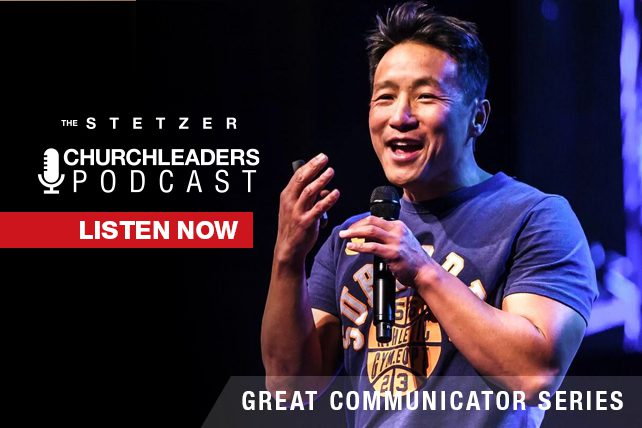“Paul’s approach in Act 17 where he sees all the idols—at that moment he could have been like Jesus in the temple with a whip, just clearing out all the idols, like, ‘How dare you worship idols? You’ve broken the first commandment, the second commandment, you’ve broken all the commandments.’ Instead he worked with them. He said, ‘Oh, look, you have a lot of idols. You are very religious.’”
“I go through what I describe in the book, a three stage sequence, where I resonate, then I dissonate, then I fulfill with the gospel.”
“What I do with my topical preaching, whether it’s to believers or non-believers, I always show how there’s a gospel fulfillment for what we’re looking for in that topic because behind every topic is a question. Behind every topic is an issue. And behind every issue is a God-given existential cry where we’re actually looking for eternity.”
“If all I do is I preach a topic, that is boring.”
“You can’t just go up to someone and say, ‘Hey, I’m going to give this to you,’ because they’re not interested. They feel like they already have all they need.”
“With expository preaching, we move inductively. So with the text we have data and from there we go inductively and we try to abstract a general universal principle which we can now preach to the audience…But we can also go deductively this way. You begin with a general principle, like a topic, anxiety, and you can go deductively and say, ‘Hey, but here’s an example of what I’m talking about in the Bible.’”
“[Getting on a hobby horse] is a danger that exists equally for both expository and topical preaching.”
“Every second year for me I’ll read through the whole Bible, so therefore I don’t have a skewed interpretation of one book. I see it all in the canon. I myself make sure I go to church myself as a worshiper, as a listener, as a disciple, to be taught by my pastor. And I have to sit there listening to learn, not listening to critique. I myself have to make sure I stay in a community of interpreters.”
“[Having an] international community of interpreters [is important] because sometimes just in our own nation, our own bubble, we have skewed readings and of not just texts but skewed readings of topics.”
“There’s so many ways we can trace a topic to Christ. It’s almost like when you preach an Old Testament text, how am I going to get from this text to Christ? And there’s more than one way.”
“Scan the international community and see what other international Christians are saying about this topic. So am I giving a very skewed interpretation? So that’s the first caution.”

